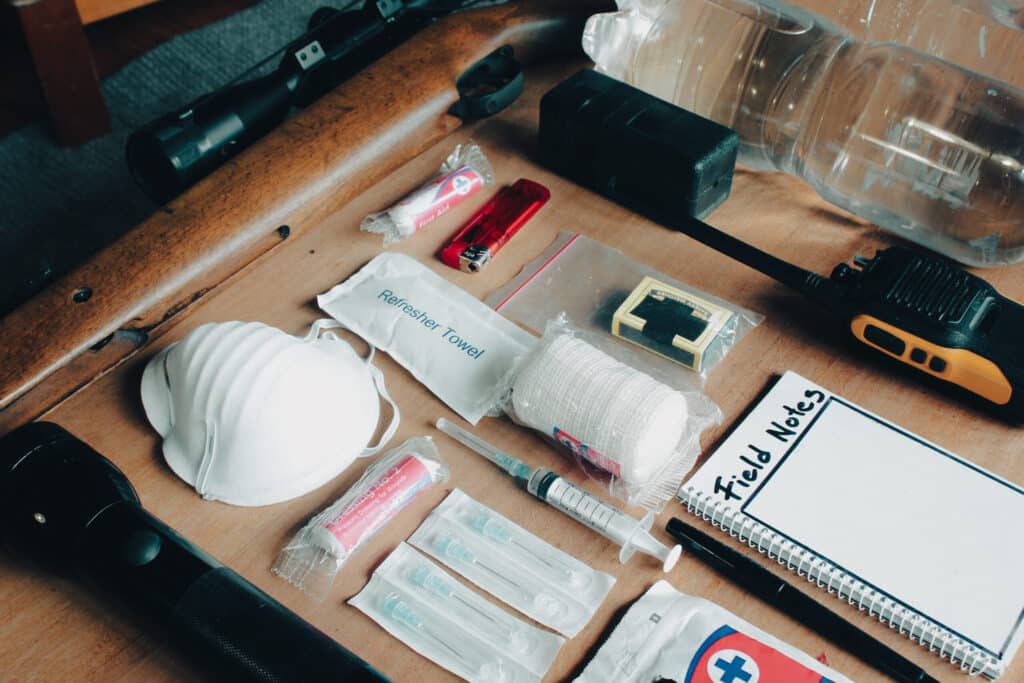“There are only two reasons to sit in the back seat of an airplane: either you have diarrhea or you’re anxious to meet people who do.”
— Henry Kissenger (former US Secretary of State)
The cursed affliction of traveler’s diarrhea
There are almost as many euphemisms for diarrhea as there are causes. For travelers, diarrhea can be an unpleasant, embarrassing and inconvenient affliction. But these days, medical science has produced a number of ways to prevent diarrhea and to treat its effects.
Traveler’s diarrhea is not just an affliction for people traveling in out-of-the-way places. It can be brought on by a change of food, or unclean and untreated water. It can even be the result of ongoing medical conditions whose symptoms are exacerbated by a sudden change of environment.
So let’s take a closer look, figuratively speaking, at traveler’s diarrhea. How is it caused; how you can avoid it; and some of the remedies that you can employ should you be unlucky enough to be struck sitting down.
An upset stomach or traveler’s diarrhea?
There is nothing new about diarrhea. This unpleasant condition has been afflicting humans since the dawn of time. It has been the subject of many jokes, stories and campfire songs down through the ages. But traveler’s diarrhea is a serious business. While it is not, in itself, a fatal malady, it can easily become a life-threatening condition if proper measures are not taken to look after yourself during a bout of diarrhea.
The main cause of complications from diarrhea is dehydration. That is why it is vital to not only drink plenty of fluids if you are suffering from traveler’s diarrhea, but to also take electrolyte replacement solutions to replenish those lost from your body. (You can find various electrolyte water or supplements at most grocery stores or pharmacies)
Traveler’s diarrhea can best be described as “a disorder of the digestive tract which causes loose stools and abdominal cramps.” It is often contracted in places where sanitary conditions are different from what you are used to at home.
Diarrhea is caused by some form of infectious agent – including various bacteria, viruses and parasites. These typically enter the body through contaminated food or water. It is often passed on via organisms found in feces. People native to high risk countries will have become accustomed to these infections. They may even have developed immunity to them, but those visiting probably haven’t.
Prevention is better than cure
You don’t want the fear of something like diarrhea to detract from your enjoyment of local culture, especially food. While many doctors and travel advisors will recommend that you don’t eat street food, you will, in fact, be missing out on one of the greatest pleasures of traveling if you avoid street vendors.
But by simply choosing places where the food is cooked fresh, right in front of you, and making sure that the usual hygiene procedures are being followed, you can significantly cut down the risk of picking up a stomach bug of some kind. Buffets, sauces, unpasteurized dairy products and tap water are often carriers of pathogens that can cause travelers diarrhea. With minimal effort it is relatively simple to avoid these.
Salads can be a problem, but they are also an oh-so-delicious addition to local food. Try to limit yourself to slices of onion, tomato and cucumber. It is also good practice to only eat fruit that you peel for yourself, such as bananas, oranges or avocados.
Early onset
Traveler’s diarrhea often begins abruptly. Most cases will improve within a couple of days without treatment or clear up completely within a week. The main symptoms typically include an abrupt need to defecate, abdominal cramps, and nausea.
Diarrhea can be especially hard on children and the malady can escalate rapidly in little travelers. It is therefore important to treat children quickly if they’re suffering from diarrhea. Young children in particular need to maintain a correct balance of fluids and the dehydrating effects of diarrhea can create a raft of complications. In babies, a dry mouth, crying without tears and a decreased volume of urine are sure signs that a baby suffering from diarrhea is becoming dehydrated. If your children develop diarrhea, contact your doctor or local clinic immediately.
Doctor, I like your medicine
Let’s face it, during your travels, you are probably going to contract traveler’s diarrhea. This is particularly true if your destination lacks hygiene standards and sanitation. Luckily, there are plenty of different medications on the market which will easily treat your traveler’s diarrhea and allow you to carry on with your adventures.
Typically, your doctor may prescribe a course of antibiotics such as Ciprofloxacin or Azithromycin.
OTC medication such as Immodium (Loperamide) does not treat the cause of the diarrhea. What it does do, however, is clear up the symptoms rapidly and effectively. Diarrhea is essentially just your body trying to eject the pathogen that is inside it and it will do this very effectively. But there is no need for you to suffer while your natural systems take care of business.
While it is a good idea to let the symptoms just run their course, if you need to catch a flight or a bus, or are out and about in some vast foreign city, taking an anti-diarrhea medication is an effective way to bring the symptoms under control and allow you to enjoy your trip. Imodium is on the World Health Organization’s list of Essential Medicines so if it’s good enough for them, it’s good enough for you.
Relax and enjoy it
Traveler’s diarrhea is an affliction that is generally harmless if treated correctly. Your medical professional or travel advisor will be able to give you plenty of advice about medication to take with you on your travels, and how to best avoid it. If you do happen to contract a bout of diarrhea, just look upon it as a part of the whole travel experience then relax and enjoy it. After that, you will be able to sit around the campfire, or at a bar in some far-flung corner of the world, and regale your fellow travelers with toilet talk tales of diarrhea.

